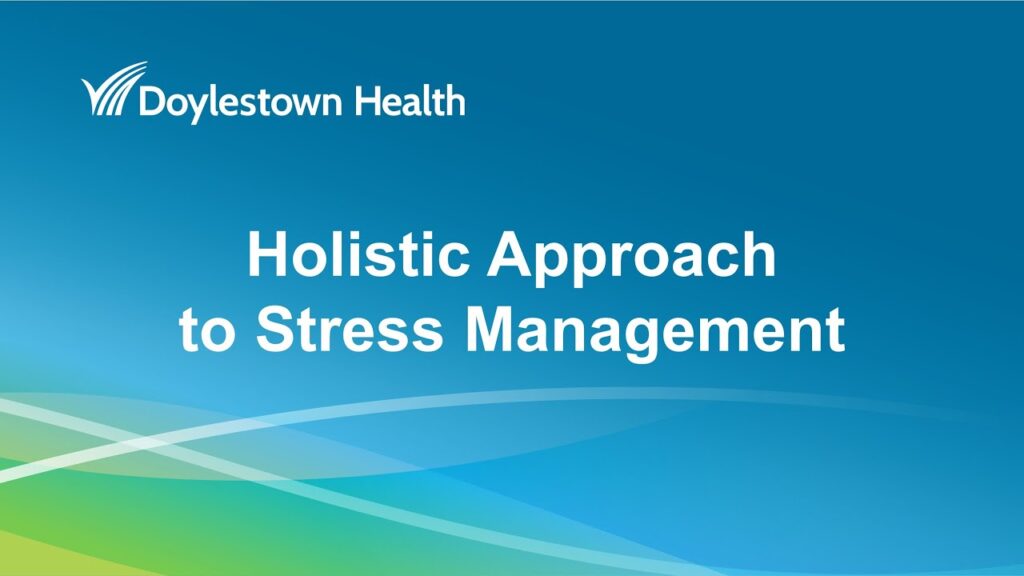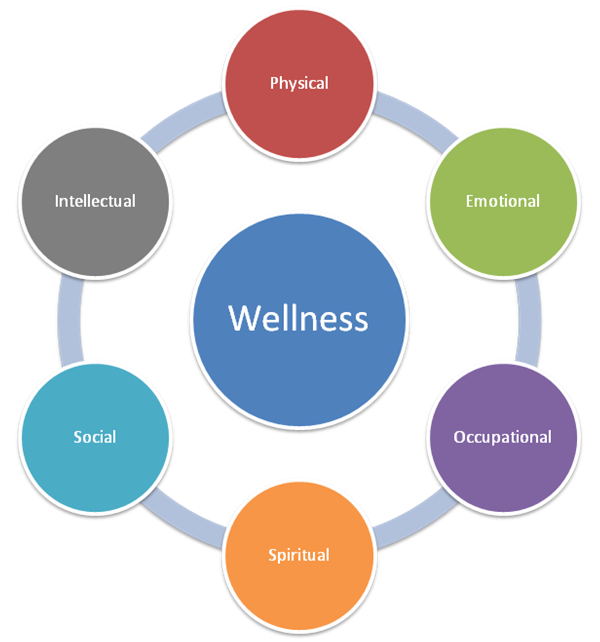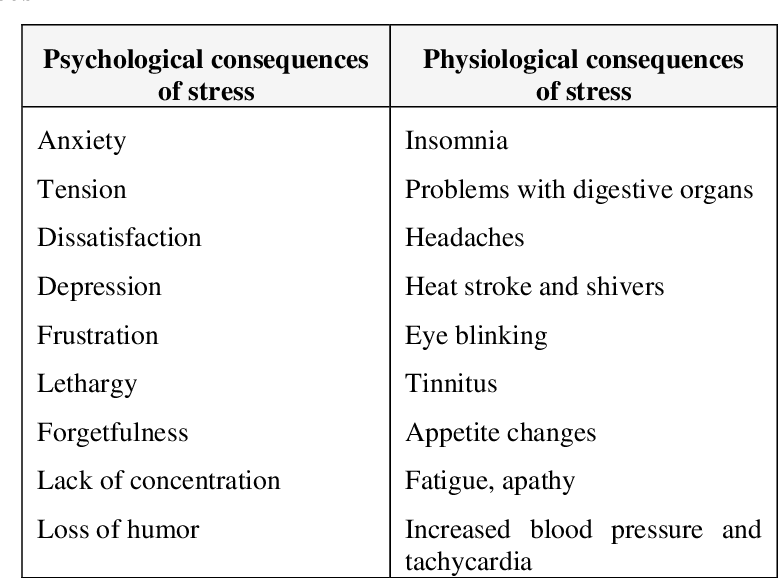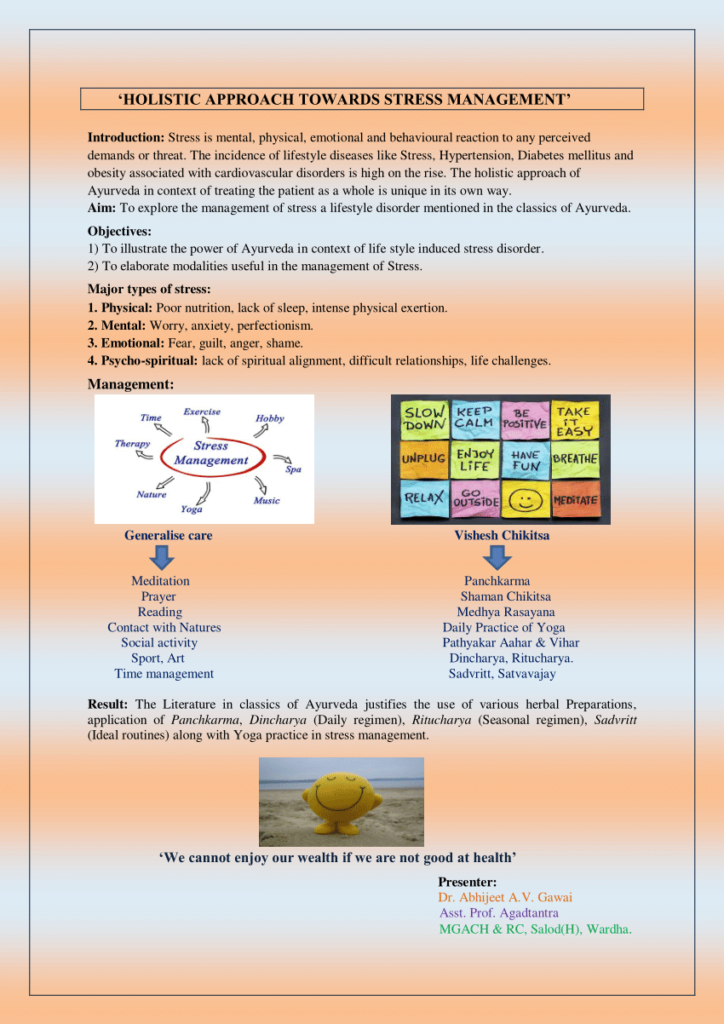Hey there! Are you feeling overwhelmed by stress and looking for a holistic approach to manage it? Well, you’ve come to the right place! Today we’re going to discuss how the ancient Hawaiian practice of Ho’oponopono can be leveraged as an effective tool for stress management. So, let’s dive in and discover how this practice can help you find inner peace and balance in your life.
Stress has become an all-too-common part of our daily lives, but it doesn’t have to be! Ho’oponopono offers a unique approach to stress management that goes beyond the usual techniques. It is a powerful practice that involves taking responsibility for our own experiences and healing ourselves from within. By addressing our inner conflicts and negative emotions, we can release the stress that has been weighing us down.
In this article, you’ll learn more about the principles of Ho’oponopono and how it can be applied in your life. We’ll explore its core beliefs, its four-step process, and how it can help you let go of stress and embrace a more peaceful state of mind. So, if you’re ready to take a holistic approach to managing your stress, keep reading and discover the transformative power of Ho’oponopono.

Holistic Approach to Stress Management
Stress has become an inevitable part of our modern lives. From work pressures to personal challenges, we all experience stress to varying degrees. However, it is crucial to understand and manage stress effectively to maintain overall well-being. In this article, we will delve into the holistic approach to stress management and explore Ho’oponopono, an ancient practice that can be a valuable tool in achieving emotional balance and reducing stress levels.
Understanding Stress
Before we delve into the holistic approach and Ho’oponopono, let’s first understand stress and its impacts. Stress is the body’s response to both internal and external pressures. It is not necessarily a negative emotion, as it can motivate us to take action and meet challenges head-on. However, chronic or excessive stress can have detrimental effects on our mental and physical health.
Definition of Stress
Stress can be defined as a state of mental or emotional strain resulting from demanding circumstances. These circumstances, commonly known as stressors, can be anything from work deadlines and financial hardships to relationship issues and health concerns. When we feel overwhelmed or unable to cope with these stressors, stress starts taking a toll on our well-being.
Causes of Stress
The causes of stress are multifaceted and can vary from person to person. Some common stressors include:
- Work-related pressures and long working hours
- Financial difficulties and debt
- Relationship challenges or conflicts
- Health issues and chronic illnesses
- Loss of a loved one or a traumatic event
- Major life changes, such as relocating or starting a new job
Understanding the specific causes of stress in our lives is essential for effective stress management.
Effects of Stress on Mental and Physical Health
Stress can have a profound impact on our mental and physical health. When we are under chronic stress, our bodies produce stress hormones like cortisol and adrenaline, which can lead to a range of health issues. These include:
- Mental health problems, such as anxiety and depression
- Sleep disturbances and insomnia
- Reduced immune function and increased susceptibility to illnesses
- Digestive problems and gastrointestinal disorders
- Cardiovascular issues, including high blood pressure and heart disease
- Cognitive impairments, such as memory and concentration difficulties
It is crucial to prioritize stress management to prevent these negative effects and promote overall well-being.
The Holistic Approach
The holistic approach to stress management emphasizes addressing the root causes of stress instead of merely treating its symptoms. It involves incorporating mind, body, and spirit to achieve overall well-being. By adopting a holistic approach, we can create a harmonious balance between different aspects of our lives and promote a sense of inner peace and resilience.
Introduction to Holistic Approach
The holistic approach considers each individual as a whole and recognizes the interconnectedness of various aspects of our lives. It goes beyond simply focusing on the mind or body and acknowledges the importance of nurturing our spiritual selves as well. This comprehensive approach aims to create a healthy and balanced lifestyle that supports overall well-being.
Addressing the Root Causes Instead of Symptoms
Unlike conventional approaches to stress management, which often focus on alleviating the symptoms of stress, the holistic approach emphasizes identifying and addressing the root causes of stress. By examining the underlying factors contributing to stress, we can make meaningful changes in our lives and reduce the likelihood of stress recurring in the future.
Incorporating Mind, Body, and Spirit
The holistic approach recognizes that the mind, body, and spirit are interconnected and influence each other in profound ways. To effectively manage stress, it is essential to nurture and care for all three aspects. This can involve practices such as meditation, yoga, mindful breathing exercises, and connecting with nature. By incorporating these practices into our daily lives, we can cultivate a sense of balance and well-being.
Benefits of Holistic Approach for Stress Management
Adopting a holistic approach to stress management offers several benefits. Some of these include:
- Improved overall well-being: By focusing on all aspects of our lives, we can experience a greater sense of balance and well-being.
- Enhanced resilience: The holistic approach equips us with tools and techniques to cope with stress more effectively, building resilience in the face of challenges.
- Increased self-awareness: Through practices like mindfulness and self-reflection, we can develop a deeper understanding of ourselves and our stress triggers.
- Personal growth: The holistic approach encourages personal growth and self-discovery, promoting a more meaningful and fulfilling life.

Ho’oponopono: An Ancient Practice
An ancient Hawaiian practice, Ho’oponopono, offers a unique perspective on stress management. Rooted in the philosophy of reconciliation and forgiveness, Ho’oponopono provides a framework for achieving emotional balance and healing.
Origin and History of Ho’oponopono
Ho’oponopono has its roots in traditional Hawaiian culture and has been practiced for generations. The word “Ho’oponopono” can be translated to mean “to make right” or “to correct.” It was traditionally used to resolve conflicts and restore harmony within families and communities.
Philosophy Behind Ho’oponopono
At the core of Ho’oponopono is the belief that we are responsible for our own experiences and the world around us. It emphasizes taking ownership of our actions, thoughts, and emotions to bring about healing and resolution. Ho’oponopono encourages us to recognize that our external reality is a reflection of our internal state, and by working on ourselves, we can positively impact our lives and relationships.
Techniques Used in Ho’oponopono
Ho’oponopono utilizes various techniques to achieve emotional healing and stress reduction. These techniques often involve repeating specific phrases or mantras, focusing on forgiveness, and cultivating a sense of gratitude and love. By engaging in these practices, individuals can clear negative emotions, let go of resentments, and create space for healing and growth.
Ho’oponopono for Stress Management
Ho’oponopono can be a powerful tool for managing stress and achieving emotional balance. By practicing Ho’oponopono, we can release negative emotions and thoughts, cultivate forgiveness, and promote a sense of peace and well-being.
Using Ho’oponopono as a Stress Management Tool
Ho’oponopono can be used proactively as a stress management tool. By regularly engaging in Ho’oponopono practices, we can create a foundation of emotional well-being that allows us to navigate stressful situations with greater ease and resilience.
Clearing Negative Emotions and Thoughts
One of the primary objectives of Ho’oponopono is to release negative emotions and thoughts that contribute to stress. Through practices like mantra repetition or meditation, we can bring awareness to our negative emotions and thoughts and consciously choose to let go of them. This process of clearing allows us to create space for positive emotions and thoughts to emerge.
Practice of Forgiveness and Reconciliation
Forgiveness is a central aspect of Ho’oponopono. By forgiving ourselves and others, we can release the emotional burden that stress often brings. Ho’oponopono encourages us to acknowledge our mistakes, take responsibility, and extend forgiveness to ourselves and those who have caused us pain. Through this practice, we can experience a profound sense of personal freedom and emotional release.
Achieving Emotional Balance with Ho’oponopono
Emotional balance is a crucial element of stress management. Ho’oponopono can help us achieve emotional balance by bringing awareness to our emotions and developing healthy coping mechanisms. By regularly practicing Ho’oponopono, we can cultivate a more peaceful and harmonious internal state, allowing us to navigate stressors with greater ease.

Steps to Practice Ho’oponopono
To incorporate Ho’oponopono into your stress management routine, you can follow the following steps:
Step 1: Taking Responsibility
Take ownership of your emotions and experiences. Recognize that you have the power to create positive change in your life by taking responsibility for your thoughts, actions, and reactions.
Step 2: Expressing Sincere Remorse
Acknowledge any mistakes or negative actions that may have contributed to stress or conflict. Express sincere remorse and a genuine desire to make amends.
Step 3: Asking for Forgiveness
Extend forgiveness to yourself and others. Be willing to let go of resentments and grudges, allowing healing and reconciliation to take place.
Step 4: Gratitude and Love
Cultivate a sense of gratitude for the lessons learned and the opportunities for growth. Focus on cultivating a state of love and compassion, both for yourself and others.
Combining Ho’oponopono with Other Techniques
While Ho’oponopono can be a powerful standalone practice, it can also be combined with other stress management techniques to enhance its effectiveness.
Meditation and Mindfulness
Combining Ho’oponopono with meditation and mindfulness practices can promote deep relaxation, self-awareness, and stress reduction. These practices can help us connect with the present moment and cultivate a sense of calm amidst the chaos of daily life.
Breathing Exercises
Conscious breathing exercises, such as deep diaphragmatic breathing or alternate nostril breathing, can be practiced alongside Ho’oponopono to promote relaxation and reduce stress levels. These techniques help activate the body’s natural relaxation response, reducing the physiological effects of stress.
Journaling and Self-Reflection
Journaling can be a powerful tool for self-reflection and emotional processing. By combining Ho’oponopono with journaling, we can gain insights into our stress triggers, recognize patterns, and develop a deeper understanding of ourselves.
Physical Activities and Exercise
Engaging in regular physical activity and exercise can complement Ho’oponopono practices. Exercise releases endorphins, the body’s natural feel-good hormones, promoting a sense of well-being and reducing stress levels.

Creating a Holistic Stress Management Plan
To effectively manage stress using a holistic approach, it is essential to create a personalized stress management plan. This plan will involve identifying stress triggers, incorporating Ho’oponopono and other stress management techniques, setting realistic goals, and tracking progress.
Identifying Stress Triggers
Start by identifying the specific stressors in your life. Take note of the situations, people, or circumstances that consistently contribute to feelings of stress and overwhelm.
Designing a Personalized Stress Management Plan
Based on your identified stress triggers, design a stress management plan that addresses each aspect of your well-being – mind, body, and spirit. Incorporate Ho’oponopono practices, as well as other techniques that resonate with you.
Incorporating Ho’oponopono and Other Techniques
Integrate Ho’oponopono into your daily routine, alongside other stress management techniques. Find a balance that works for you, ensuring that you dedicate time and attention to nurturing your well-being.
Setting Realistic Goals and Tracking Progress
Set realistic goals for stress reduction and overall well-being. Make a note of your progress and reflect on any improvements or insights gained along the way. Celebrate your successes, no matter how small.
Maintaining a Holistic Lifestyle
To truly benefit from the holistic approach to stress management, it is important to cultivate a holistic lifestyle. This involves adopting healthy habits across different areas of our lives.
Healthy Eating and Nutrition
A balanced and nutritious diet plays a vital role in managing stress. Incorporate whole foods, fruits, vegetables, and lean proteins into your diet. Limit the consumption of processed and sugary foods, which can contribute to stress levels.
Quality Sleep and Relaxation
Adequate sleep and relaxation are essential for stress management. Prioritize getting enough sleep and establish a bedtime routine that promotes restful sleep. Engage in activities that help you unwind, such as reading, taking a bath, or practicing relaxation techniques.
Building Positive Relationships
Nurturing positive relationships can contribute to overall well-being. Surround yourself with supportive and uplifting individuals who understand and respect your stress management efforts. Foster healthy communication and invest time in nurturing these relationships.
Practicing Self-Care and Self-Compassion
Self-care and self-compassion are integral components of stress management. Dedicate time to engage in activities that bring you joy and relaxation. Be kind and compassionate toward yourself, recognizing that managing stress is a continuous journey.

Seeking Professional Guidance
While self-practices are valuable, seeking professional guidance can further enhance your stress management journey. A qualified holistic practitioner can provide personalized guidance, support, and techniques tailored to your specific needs.
Importance of Professional Guidance
A trained holistic practitioner can offer valuable insights, tools, and techniques to support your stress management efforts. They can help you navigate through challenges and provide guidance for long-term success.
Finding a Qualified Holistic Practitioner
When seeking a holistic practitioner, ensure that they are qualified and experienced in their field. Look for recommendations from trusted sources and conduct research to find a practitioner who aligns with your needs and values.
Individual Therapy and Counseling
Individual therapy and counseling can be beneficial for managing stress and addressing underlying emotional issues. A therapist or counselor can provide a safe space for exploring stress triggers, developing coping mechanisms, and fostering personal growth.
Group Support and Community Resources
Joining support groups or engaging in community resources can provide a sense of connection and validation. Interacting with individuals who have similar experiences can foster a sense of belonging and provide additional insights and support.
Measuring Success and Adjusting
As you progress on your stress management journey, it is important to measure your success and make necessary adjustments to your plan. Regularly evaluate your stress levels and emotional well-being, and make changes as needed.
Tracking Stress Levels and Triggers
Create a system for tracking your stress levels and identifying patterns. Notice any specific triggers or situations that consistently contribute to stress. This awareness will help you make informed decisions and adapt your stress management strategies accordingly.
Monitoring Emotional and Physical Well-Being
Regularly check in with your emotional and physical well-being. Notice any shifts in mood, energy levels, or overall sense of well-being. Make adjustments to your stress management plan if you notice any significant changes.
Making Necessary Adjustments in the Plan
Be flexible and open to making adjustments in your stress management plan. If certain techniques or practices are not yielding the desired results, explore alternative approaches or techniques that may better suit your needs.
Continuously Improving Stress Management Practices
Stress management is a continuous journey of self-discovery and growth. Continuously seek ways to improve your stress management practices, incorporating new techniques, and adapting your routine as needed.
Long-Term Benefits of Holistic Approach
Adopting a holistic approach to stress management offers numerous long-term benefits for overall well-being.
Reduced Stress Levels
By addressing the root causes of stress and adopting effective stress management techniques, holistically managing stress can lead to reduced stress levels over time. The comprehensive nature of the holistic approach promotes a balanced lifestyle that supports ongoing stress reduction.
Improved Overall Health and Well-Being
The holistic approach recognizes the interconnectedness of mental, emotional, and physical well-being. By nurturing all aspects of our being, we can experience improved overall health, vitality, and a greater sense of well-being.
Enhanced Resilience and Coping Mechanisms
The holistic approach equips individuals with tools and techniques to build resilience and develop healthy coping mechanisms. By consistently practicing stress management techniques, individuals can navigate challenging situations with greater ease and adaptability.
Increased Self-Awareness and Personal Growth
Engaging in mindful practices and self-reflection fosters increased self-awareness. The holistic approach encourages individuals to explore their stress triggers, patterns, and internal narratives. This self-awareness can lead to personal growth, enabling individuals to make positive changes in their lives.
Potential Challenges and How to Overcome Them
As with any significant lifestyle change, adopting a holistic approach to stress management may present challenges. By acknowledging and actively addressing these challenges, we can navigate them successfully.
Resistance to Change
Resistance to change is a common challenge when adopting new stress management practices. Recognize that change takes time and effort, and be patient with yourself. Start small and gradually incorporate new practices into your routine to make the transition easier.
Lack of Time and Commitment
Finding time for stress management practices can be challenging, especially in our fast-paced lives. Prioritize self-care and stress management as essential components of your overall well-being. Set aside dedicated time each day or week and commit to these practices.
Dealing with Setbacks and Relapses
Stress management is a journey filled with ups and downs. Setbacks and relapses are a natural part of the process. Instead of dwelling on these setbacks, view them as opportunities for learning and growth. Dust yourself off, recommit to your stress management practices, and continue moving forward.
Building a Support System
Navigating stress management can feel overwhelming at times. Building a support system of friends, family, or fellow practitioners can provide guidance, accountability, and support. Share your journey with trusted individuals who can offer encouragement and understanding.
Holistic Approach to Stress Management in Daily Life
To fully embrace the holistic approach to stress management, it is essential to incorporate these techniques into your daily life.
Incorporating Holistic Techniques in Daily Routine
Create a routine that includes various holistic techniques like Ho’oponopono, meditation, mindfulness, and breathwork. Dedicate time each day to engage in these practices, even if only for a few minutes. Consistency is key in reaping the benefits of these techniques.
Practicing Mindfulness Throughout the Day
Practice mindfulness throughout your day by bringing your attention to the present moment. Notice your thoughts, emotions, and physical sensations without judgment. Mindfulness can help you stay grounded and maintain a sense of calm, even during challenging situations.
Creating a Peaceful Environment
Create a home environment that promotes peace and relaxation. Incorporate elements that bring you joy and inspire tranquility, such as soft lighting, soothing music, or nature-inspired decor. This environment can serve as a sanctuary for stress relief and recharging.
Redefining Priorities and Setting Boundaries
As you embrace the holistic approach to stress management, reassess your priorities and set boundaries. Identify activities or commitments that drain your energy and contribute to stress. Learn to say no to excessive demands and focus on what truly matters to you.
Conclusion
In conclusion, the holistic approach to stress management offers a comprehensive and effective way to address stress and promote overall well-being. By incorporating techniques such as Ho’oponopono, individuals can achieve emotional balance, reduce stress levels, and cultivate resilience. Embrace the holistic approach to stress management and take proactive steps towards a healthier and more fulfilling life. Start implementing these practices today, and witness the long-term benefits for your overall well-being.